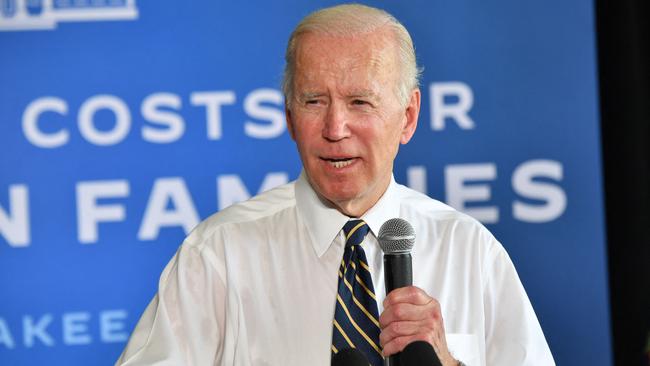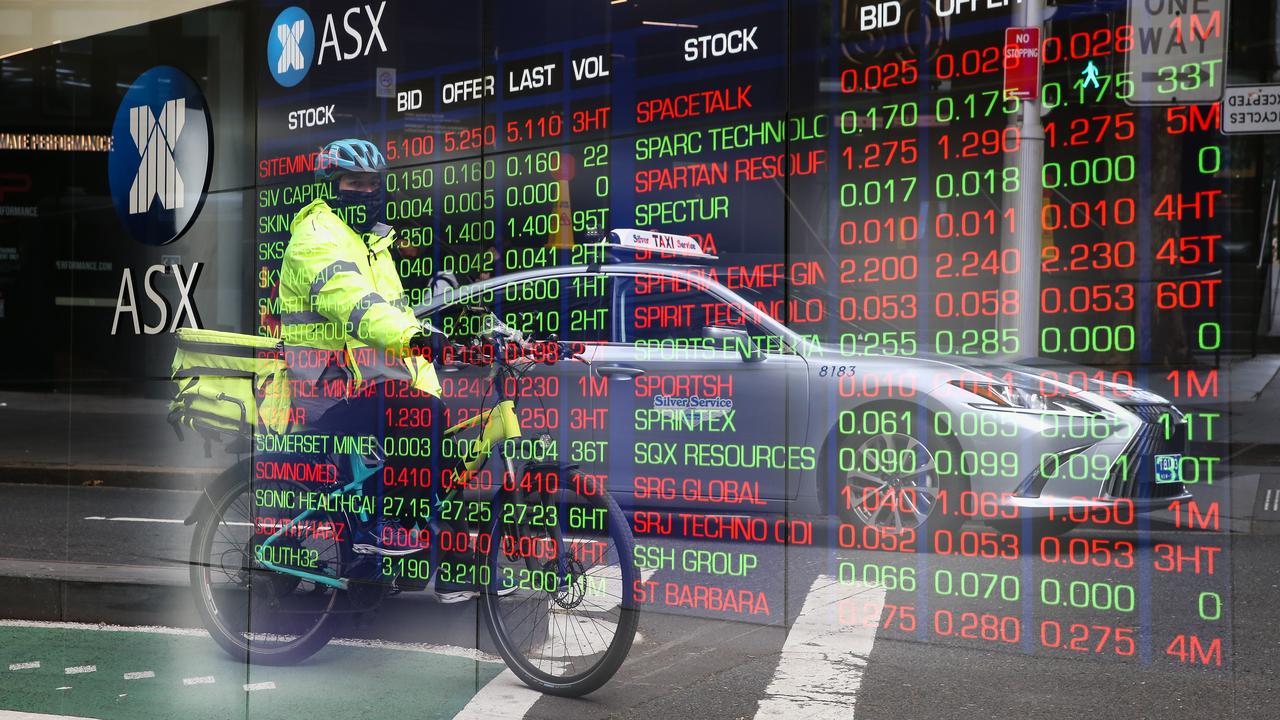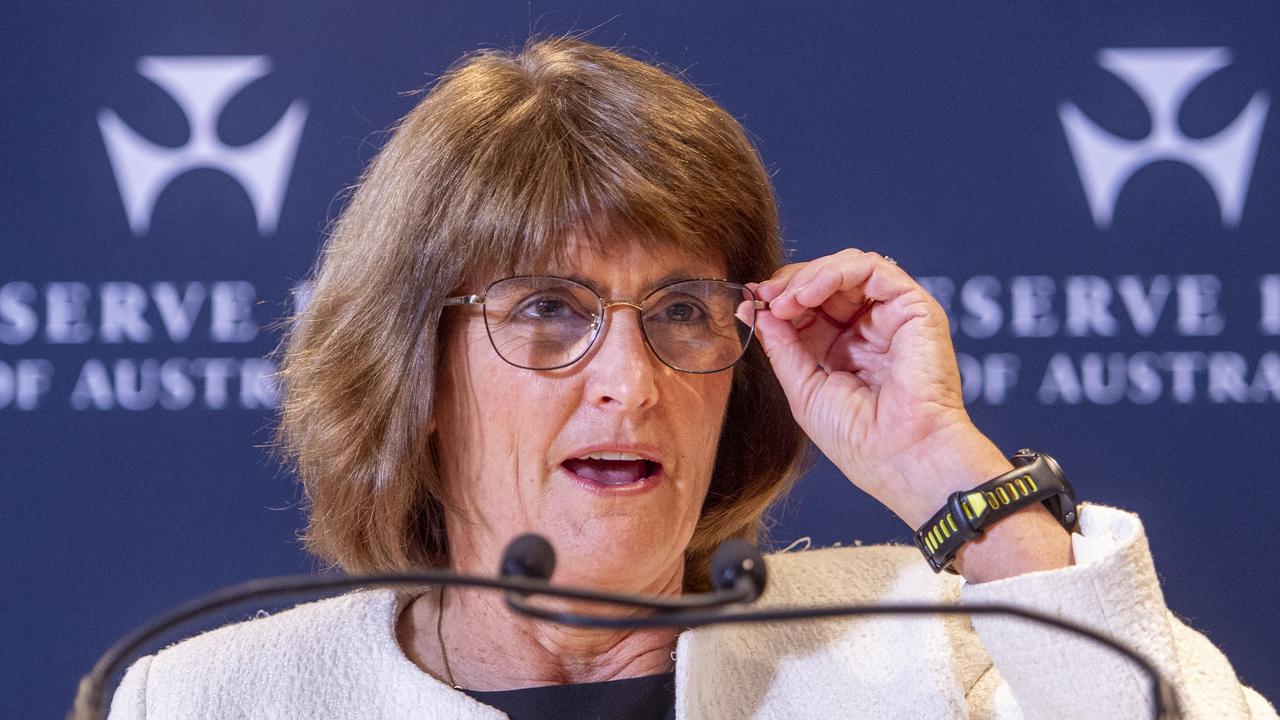Pressure remains on ‘unacceptably high’ inflation in US
Joe Biden said he’s ‘confident’ the Federal Reserve would ‘do its job’ after inflation declined by less than expected to 8.3 per cent over the year to April.

President Joe Biden said he was “confident” the Federal Reserve would “do its job” after inflation declined by less than expected to 8.3 per cent over the year to April, suggesting record high inflation, underpinned by record energy price increases, was unlikely to dissipate quickly.
In a statement on Wednesday Mr Biden welcomed the first decline in the rate of annual inflation in eight months, but conceded it remained “unacceptably high”.
“Inflation is a challenge for families across the country and bringing it down is my top economic priority … This starts with the Federal Reserve,” he said.
Reducing inflation, which increased steadily from 5.3 per cent in August last year to 8.5 per cent last month, has become the number on focus for US policymakers, prompting the Federal Reserve to lift the official interest rate by a rare 0.5 percentage points last week to 1 per cent and pencil in a series of further increases.
“The data will strengthen the Fed’s resolve to continue hiking rates by 50 basis points at the next couple of meetings – and may lead to renewed speculation about a 75 basis point hike or an inter-meeting move,” said Andrew Hunter, a senior economist at Capital Economics.
The benchmark US share index the S & P500 fell more than 0.5 per cent in the wake of the inflation figures, as investors factored in the impact of higher-than-expected underlying inflation on future interest rates.
Yields on 10 year US government bonds remained largely unchanged, around 3 per cent.
“The eventual descent in the pace of inflation will be very gradual,” said Kathy Bostjancic, chief US economist for Oxford economics, who pointed out core inflation, which strips out food and energy items, doubled to 0.6 per cent over the month, which was the fastest increase since January.
“The renewed rise in petrol prices towards a record US$4.50 a gallon nationally and increase in diesel prices signals that there is still upward risk to the inflation outlook,” she added. A sharp 6.1 per cent drop in petrol prices in April, which remain 44 per cent higher than a year ago, explained the bulk of the decline in the headline inflation rate.
Energy (including gas and electricity), used cars and food prices have increased by more than 30 per cent, 23 per cent, and 9 per cent, respectively, over the last 12 months.
Airfares rose almost 19 per cent over the month, the biggest increase among items tracked in the consumer price index, and the largest increase for this category since 1963. Room rates and hotels and motels jumped 2 and 4 per cent respectively over the month.
The price of services, including rent, which are largely unaffected by energy markets or global supply bottlenecks, rose 0.7 per cent over the month to April, up from 0.6 a month earlier, including a 0.5 per cent rise in rent.
Mr Biden and the ruling Democrat party have sought to blame unexpectedly high inflation in recent months on Russia’s invasion of Ukraine and more recently, China’s lockdown of Shanghai, which has further disrupted supply chains already disrupted by years of pandemic restrictions, with mixed results.
“Inflation is no longer just contained to the supply chain — these pressures are actually becoming more broad-based,” Aneta Markowska, chief financial economist at Jefferies LLC, told the Wall Street Journal.
Surveys repeatedly show Americans blame the Biden administration for record high inflation, a concern for the party as it approaches critical midterm Congressional elections in November where it will be defending wafer thing majorities in both houses.



